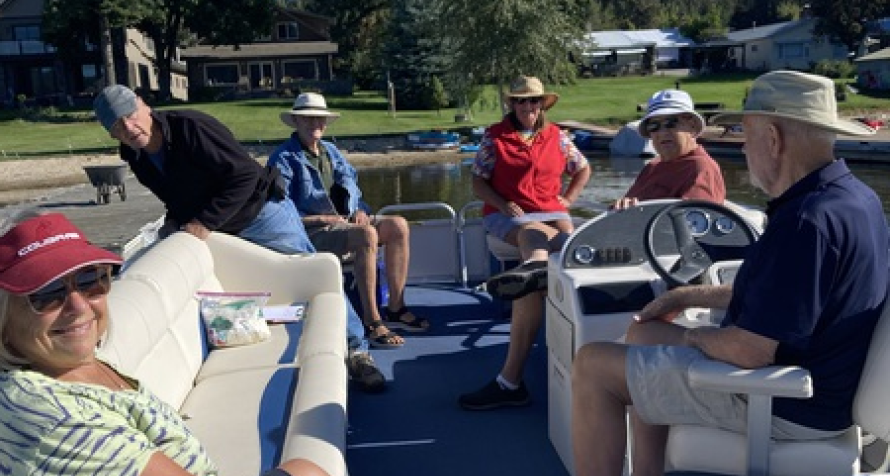
Environmental Lake Improvement
by Barry Smith
“Storm water runoff” is considered to be the major water pollution problem in our area and in many other areas, nationally. One
of the Washington State Department of Ecology managers clearly stated that “storm water runoff” was the main problem for the declining water quality at Loon Lake.
The Loon Lake Property Owners Association has several members who would like to see the association publish an educational
manual. The manual would address the many measures that may be employed to seriously reduce pollutants from entering Loon Lake. This could be accomplished by a joint effort that wouldn’t cost
taxpayers enormous sums of money.
Virtually everyone in our watershed, I’m sure, is interested in improving our lake aesthetically as well as chemically, so
anything that we can all think of to help improve water quality will be well received. Many communities have joined together and formed water quality partnerships. They have been very successful and
enjoyed the experience of working with people of vastly different backgrounds. Their goals have been to educate and involve community members to improve water quality, fish habitat, and to provide a
chance for members to have a voice on issues involving government regulations.
Primary “Non-Source Pollutants” come from households within the watershed, and if not disposed of properly, these non-source
pollutants enter our lake during periods of run-off. Such pollutants include soil, oil, chemicals, trash, agricultural and animal waste, pesticides, yard waste, etc. The increase of these pollutants
can be directly related to increased residential development and occupation within our watershed. Bellingham, WA gets its water from Lake Whatcom, and while
they have had an improvement plan since 2004, the phosphorus continues to increase because of upstream development.
Remedies to Run-Off Pollution
- Impervious surfaces, primarily roofs and concrete driveways and patios. Some areas limit them to as little as 80% of total land per parcel. Some areas don’t allow impervious surfaces for driveways or patios.
- To lessen the impact of steep slopes, plant erosion-resistant native vegetation. Plant and buffer strips of native vegetation where appropriate, such as at the shoreline.
- Avoid using pesticides and phosphorus-based fertilizers. They may poison good bugs, birds and fish if they get into the lake water.
- To lessen the development of critical properties owners will sell PDR (purchase of development rights).
- Some communities provide tax credits or grants to landowners to restore in enhance existing riparian zones.

